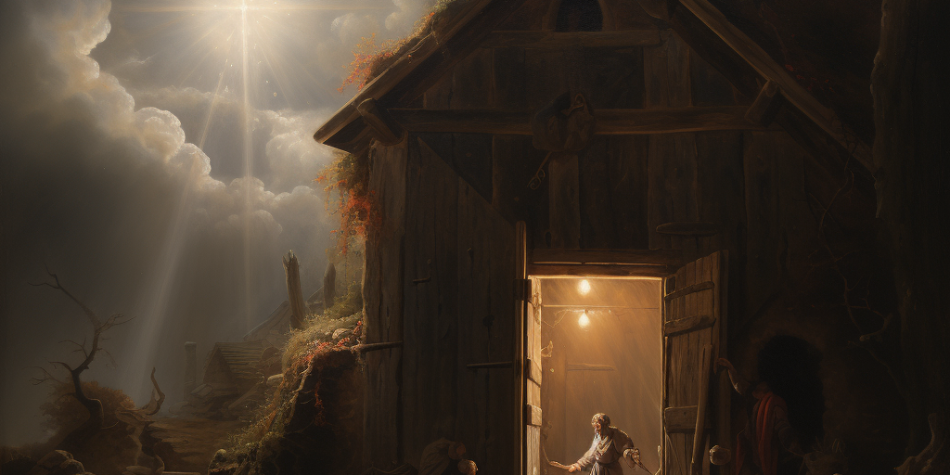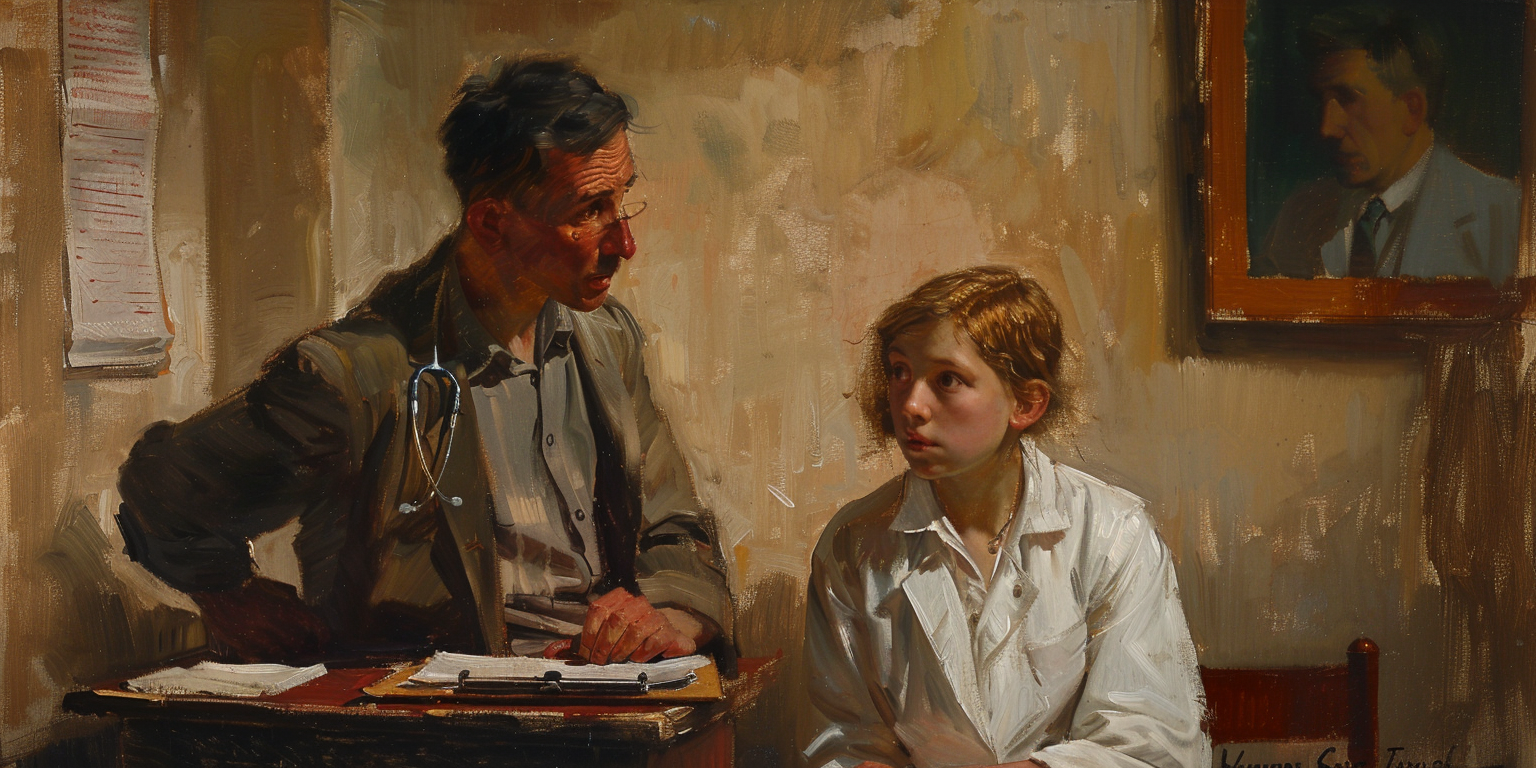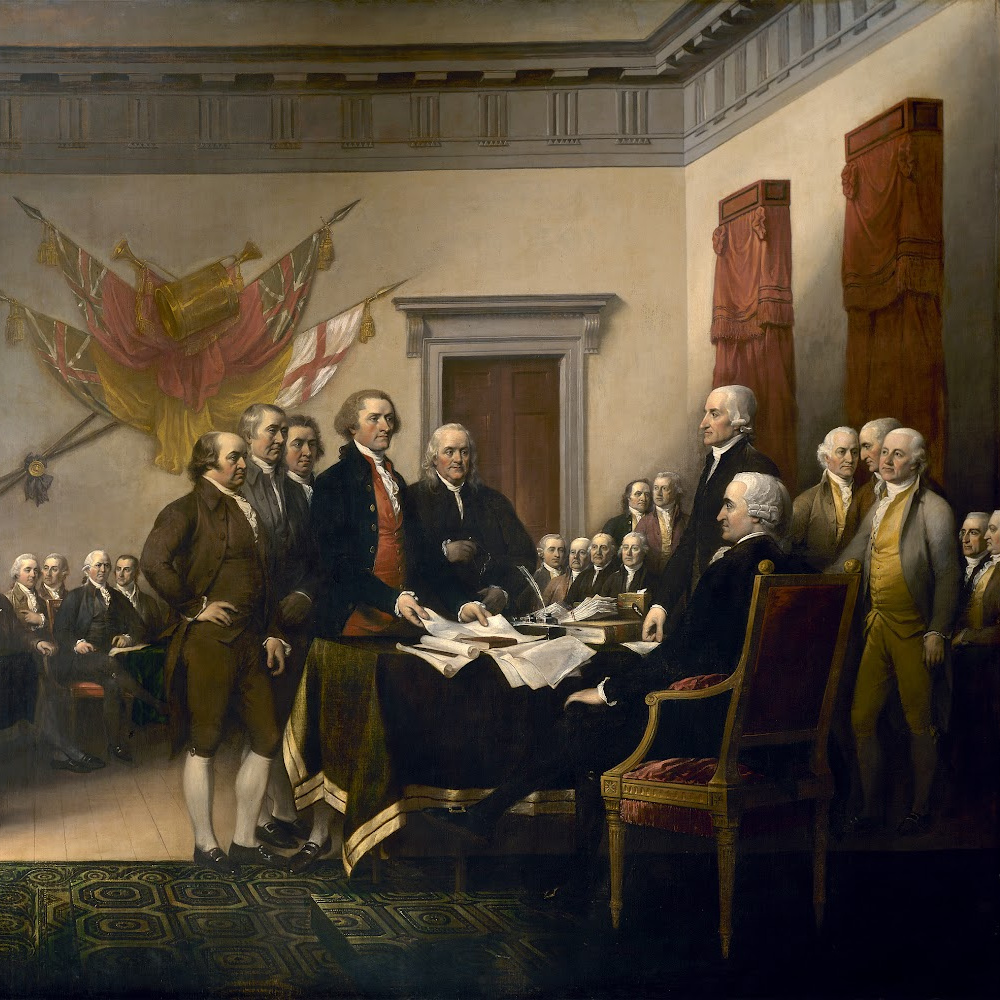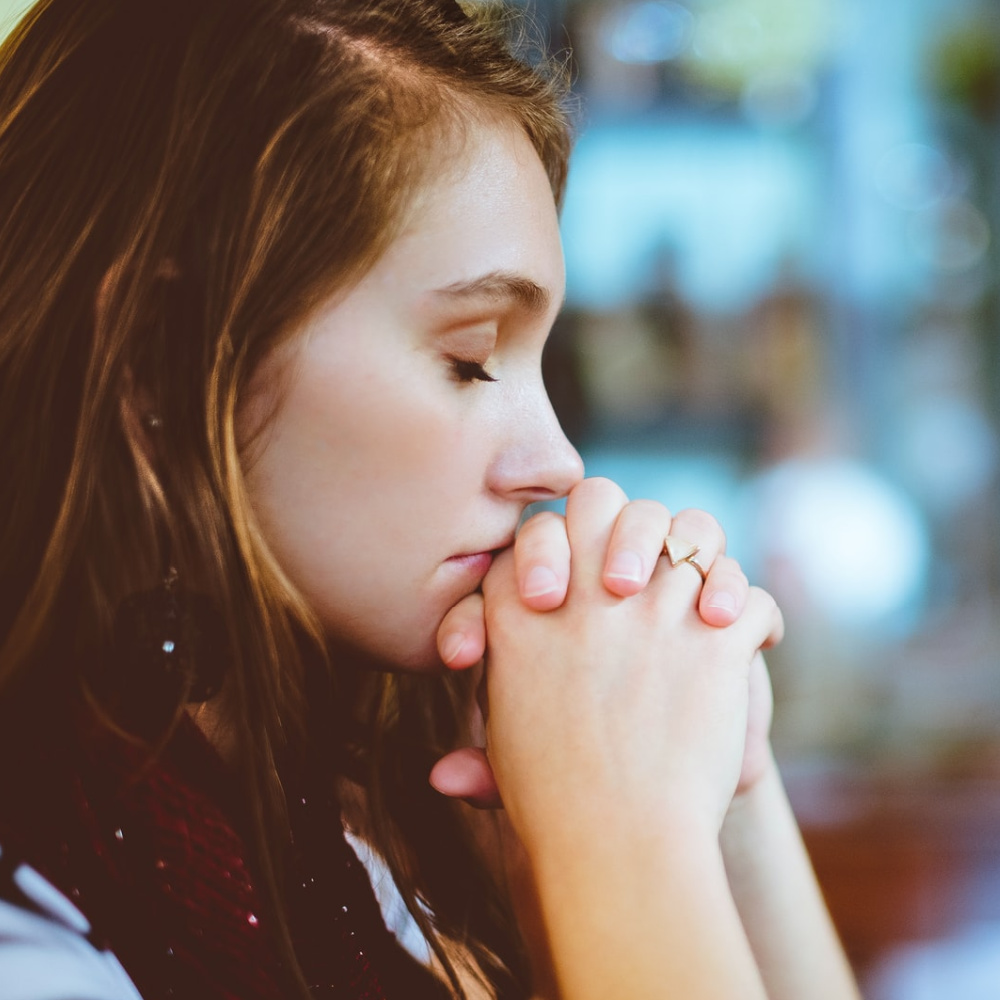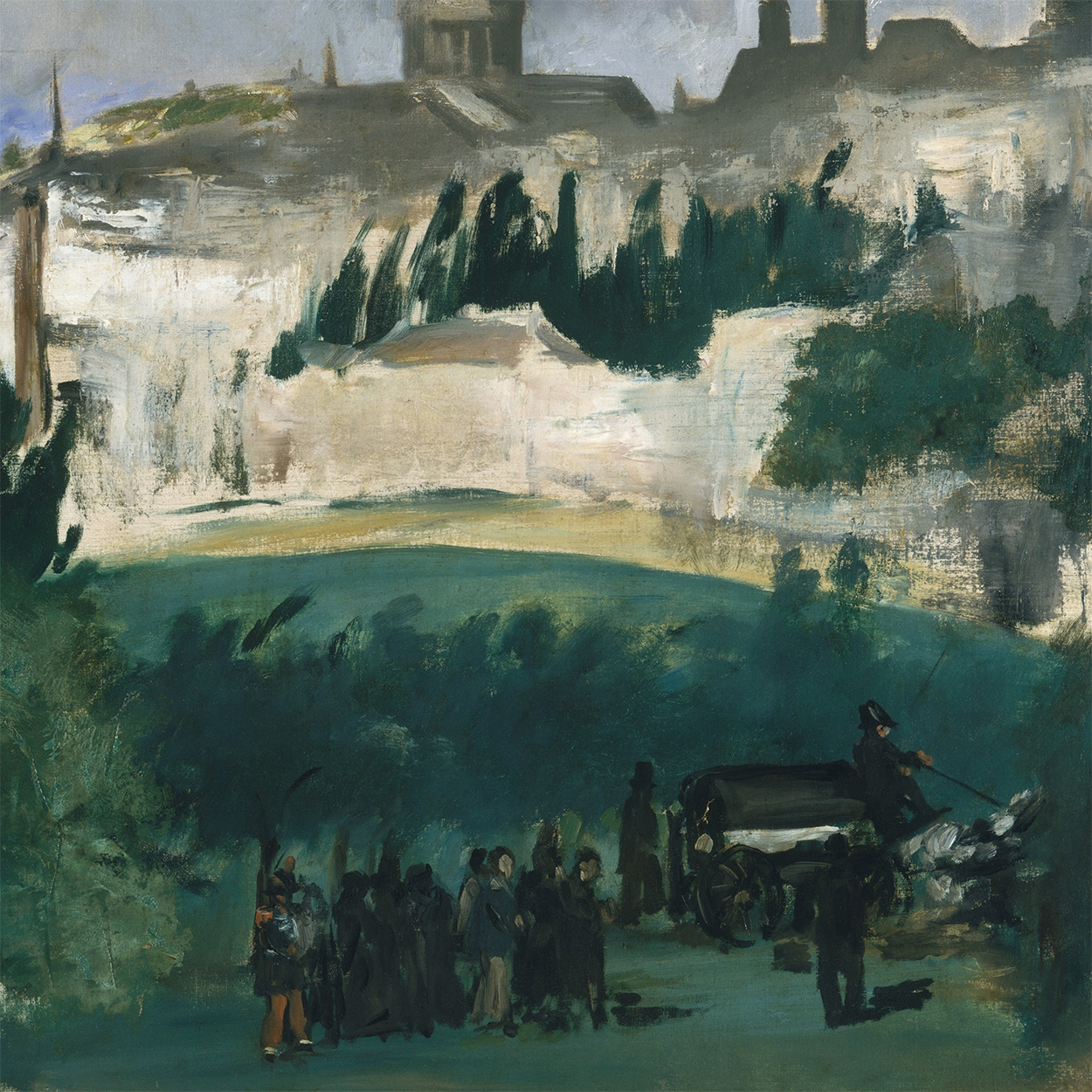The ideas in this article series draw from and build on ideas initially shared at an invited talk titled “How Sacred Experiences Can Provide Reasons for Eternal Hope,” given at the Reason for Hope lecture series sponsored by the Wheatley Institute at Brigham Young University on March 14, 2019.
In this article I share three sacred spiritual experiences the Lord blessed me with that have given me “reason for the hope” that I have in religious realities (1 Peter 3:15). I share three accounts about those experiences in the hope that these accounts will encourage faith and encourage you to record your own spiritual experience(s).
I do so with the understanding that we ought not to share deeply personal spiritual experiences indiscriminately. I wrote these experiences first and foremost for the benefit of my children and grandchildren, but I hope that reading them might be a blessing in the life of any person who receives them.
Latter-day Saint readers probably will more easily recognize and resonate with the three sacred experiences shared herein. My hope is that readers from any faith background—including no faith background—will find some meaning and value in these transformative experiences.
The first experience is my personal spiritual conversion at age eighteen. The other two experiences involve spiritually meaningful encounters with others that had lasting influence. All three experiences are sacred to me—and I believe to others who shared those experiences.
I felt loved at the deepest levels of my soul.
Is There a God Who Knows Us and Loves Us?
I was given a reason to hope for an affirmative answer to this question many years ago when I was a non-practicing Episcopalian and a worldly, arrogant, dumb-jock of an 18-year-old kid in Northern California. LoDonna Leininger, a faithful Latter-day Saint and a coworker of my mother, gave my mother a copy of the Book of Mormon that, several months afterward, I was repeatedly and strongly impressed to read. In November of 1977, because of these strong spiritual urgings, I read nearly the entire book over two consecutive “all-nighters.” Picking up the story at the end of the second night, here is what I have written about that sacred experience:
With renewed vigor and purpose, I continued to read the Book of Mormon. At about 5:00 a.m. I was running out of energy, was extremely sore, and was starting to nod off as I read. I was about twenty pages from the end of the book, and I decided that I would get some sleep and finish the book later that day. After I had made this decision and started to get up, I felt an overwhelming feeling and very clear thought that I needed to “finish the book now.” At the same time, I suddenly felt renewed energy. In fact, I felt as if I had just awoken from a good night’s sleep. And the soreness of eyes, neck, back, and legs disappeared.
So, I stayed in the chair and continued reading until I came to some verses that Mrs. Leininger had marked. She had underlined Moroni 10:3-5 in red pen, highlighted them with a yellow highlighter, and had written in the margin in all caps, “VERY IMPORTANT VERSES. READ THESE CAREFULLY!” I carefully read these verses several times and tried to understand what they were suggesting I should do. I came to understand that I should ponder certain things. I pondered about how good the Lord had been to the peoples of the earth and to me personally.
Then it came to me that the verses were suggesting I should pray and ask God if the Book of Mormon was true. In the Episcopal Church, whenever we prayed, we knelt. So, I knew I should kneel to pray. I knelt at the side of my bed and, with faith in the Jesus Christ that I had read about in the Book of Mormon, I asked God to forgive my sins and asked if the Book of Mormon was true.
It is not possible for me even to begin to adequately express in words what then happened. I felt the same type of wonderful feelings I had felt since I first began reading the Book of Mormon, but at such an intensified level of power and depth that I cannot describe. I had never felt such power and love before. It was as if a river of pure water rushed through me, washing away all my sins. It was also like a raging fire purged away my old self. I felt completely clean and like an entirely new person.
And not only was there great power in what I experienced, but the depth of love I felt was beyond description. I felt loved at the deepest levels of my soul. I felt that, although I did not know God, God knew me perfectly. And although God knew me perfectly—all my sinfulness, pride, vanity, and selfishness—He still loved me in a way that I had never felt loved. And although I knew I did not know much about God—yet, somehow, I knew God in a way and at a depth that I cannot express.
Along with this came the certain knowledge that the Book of Mormon was true—was the word of God in every way. I knew with perfect certainty that this book was from God. The sure knowledge that the book I had just read was absolutely true in every way was seared in my mind, heart, and soul. I knew, for myself, that it was the word of God.
I felt my heart and mind changed in a profound way. I no longer wanted to be what I was and do what I was doing. I only wanted to do what God wanted me to do. I did not know what that was, but I was filled with a joy and excitement that is beyond my ability to express. I never wanted to do anything but love and serve as many people as possible. I wanted to tell as many people as possible about Jesus Christ and about the Book of Mormon. (Excerpted from God’s Tender Mercies, pp. 10-14)
How does one determine the existence of God? Is it through philosophy, theology, science, logic, reason, experience, or any/all of these? I submit the most immediate and sure way is by having some kind of personal sacred encounter with God. Does a personal encounter with God prove in an empirical way that God exists?
As I discuss in Parts 1 and 3 of this series [add hyperlink], spiritual experience can be a kind of empirical proof of the existence of God in one’s life. It certainly can for the person who is blessed with the personal knowledge that sacred experiences can provide. It can also ignite or strengthen the faith and hope of others who believe that person is sane and trustworthy. How does one determine the existence of God?
Does God Really Answer Persistent Prayers of Faith?
The experience I’ll share next occurred the following year at the very beginning of my first semester at Brigham Young University (BYU) in August of 1978. I chose to attend BYU because the missionaries said it was the best place to prepare for a full-time mission:
During the summer I was preparing to go to BYU, I began thinking that although taking BYU classes in the Book of Mormon, Bible, Doctrine and Covenants, and Missionary Preparation would be very helpful for me, what I really needed was to have a non-Mormon roommate. I began praying almost every day that I would have a non-LDS roommate.
I knew that BYU was a Latter-day Saint university, but I did not realize that it was 98% LDS and the chances of having a non-LDS roommate were extremely low.
In late August, I loaded up my 1970 Chevy Impala and drove across the desert to Provo, Utah. I drove into the parking lot of Deseret Towers. I found Q-Hall and went inside. I went to the Hall office, said hello to the woman working there, told her my name, and asked her who my roommate was. She told me the name of my roommate and told me which room I was in. I said thanks and then asked, “By the way, is my roommate Mormon?”
She looked at me a little funny and said, “Well, I assume he is.”
I asked, “Would you please check for me?” She looked at me like I was a little strange and went back to a file drawer and looked in a file.
She turned around and said, “Yes, your roommate is Mormon.”
I said, “I’m really sorry, but there has been some kind of mistake. My roommate is not supposed to be a Mormon. Could you please just check one more time?” Now she looked at me like I was not just strange but rude as well.
She pulled out the file and, while looking at it, walked back over to the window where I was standing. She pulled out a piece of paper and said, “Hmm, that’s interesting. Your roommate is a member of the Church. But it says here that he just had an appendicitis attack, is in the hospital having an emergency appendectomy, and will not be arriving for a couple of days. So, I guess you’ll be alone in your room for a few days.” I thanked her and took my two suitcases up to the room.
When I got into my room, I put my suitcases down, closed the door, knelt by one of the beds, and prayed, “Heavenly Father, I thank thee for helping me arrive here safely. You know that I am here to prepare to serve you as a missionary and that I would really, really like to have a non-Mormon roommate. If it be thy will, may I please have a non-Mormon roommate?”
I arose from my knees, opened the door, looked down the hallway, and saw a guy getting a drink from the water fountain. I walked down the hall, and when he was finished getting his drink, I said, “Hi, I’m Dave Dollahite.”
He said, “Hi, I’m Bob Day.”
“Hi, Bob. Where are you from?”
“Washington, DC,” he said.
“Cool, the nation’s capital. How many stakes are there in Washington, DC?”
“What’s a stake?” he asked.
“Oh, you’re not LDS?”
“No. I’m Catholic,” he said.
“Cool. I was raised Episcopalian, that’s really close to Catholic. So, what brought you to BYU?”
“Well, I’m not really sure. I’m into music, and I had a Mormon friend in high school who told me BYU had a good music program. So here I am.”
“Great! So, which room are you in?” I asked.
“Well, I’m actually not even in this building. I’m in the one next to this one. But a fire broke out in my room right before I arrived. They have no idea how it started since no one was even in the room. But there was smoke damage, so while they are replacing the carpet and drapes, they told me to come over here for a couple of days.” He pointed to a room, and I could see he was beginning to unpack.
“Do you have a roommate?” I asked.
“No, I’m on my own,” he said.
I said, “Hey, my roommate is in the hospital and is not coming for a couple of days. Would you like to stay in my room until your room is ready?”
“Sure. That sounds great!” Bob said. He grabbed his bags and brought them down to my room. We hit it off. That night I told him about my conversion to the Church, and he was very interested. He was a devout Catholic but found my story interesting. We became fast friends. After a couple of days, we went down to the Hall office and told the head resident that we would like to be roommates if possible. We asked her if she could switch our roommates to have my roommate become Bob. She said that would be fine, so Bob and I became official roommates.
Bob came to church the first Sunday, and after a couple of weeks, the missionaries began coming over to our room to teach Bob the discussions. I was able to teach with them over the couple of months that Bob investigated the Church. Bob was baptized on October 28 (nine months to the day after my own baptism). The greatest miracles the Lord performs involve communing with his children.
I do not know how the Lord or His angels work out all the details to answer such prayers in such ways. I only know that He answers prayers; even ones that require the Lord to “move heaven and earth” to answer them.
The Lord’s tender kindness in responding to my specific, if unusual, prayer reinforced for me the power of persistent prayer with complete faith. (Excerpted from God’s Tender Mercies, pp. 111-115.)
While it is easy and natural to be impressed with some of the physical miracles God and His servants have performed, such as the creation, the parting and calming of seas, healings, and the multiplying loaves and fishes, I believe that the greatest miracles the Lord performs involve this delicate dance of communing with His children, answering their prayers, guiding their lives, and providing opportunities for eternal growth, all while honoring the agency of each and every person involved.
Can God Know Our Futures and Guide Our Lives?
I will share an experience that gives me hope that God indeed knows our futures and guides our lives in ways that bless us and others. This experience occurred during my full-time mission in New England, in my first area (Fitchburg, Massachusetts), with my first companion, Elder Wayne Buhler:
On November 11, 1979, our Elder’s Quorum president, Brother Corrigan, called us on Saturday evening to tell us he was bringing a friend to church the next day. On Sunday, he introduced us to Jackie McLean, a single mother of three children, Marie, Kelly, and Jimmy.
While we were in a Sunday School class, Brother Corrigan came and got us out of class and asked if we would assist him in administering to Jackie. She had been trying to quit smoking for some time. Brother Corrigan told her about priesthood blessings, and she had asked for a blessing. We went downstairs into a classroom and gave Jackie a priesthood blessing by laying our hands on her head and speaking words inspired by the Holy Spirit.
Brother Corrigan stood behind her and was voice for the blessing, Elder Buhler stood behind her on her left, and I stood behind her on her right. During the blessing, Elder Buhler and I felt the spirit very strongly. After the blessing, Jackie stood up and looked very white—as though she was going to pass out. She said she was not feeling well and wanted to go home. She accepted our invitation to take the discussions the next day and went home.
We began teaching the McLean family the next evening. The kids seemed to enjoy our visits and accepted what we taught. Jackie accepted everything we taught her, although she said she had been a Pentecostal Christian who had read and believed a great deal of anti-Mormon literature.
Ten days later, as Elder Buhler and I were teaching Jackie about the Atonement of Jesus Christ, I began to have the strongest sense of déjà vu that I had ever experienced. I stopped teaching, turned to Elder Buhler, and said, “I am feeling really strong déjà vu.”
Elder Buhler said, “So am I!”
Then Jackie said, “Would you like me to tell you why?” We nodded, and she told us that beginning a couple of years ago, she began having a recurring dream that she was in some deep distress, and there were two young men in dark suits with short hair who were praying over her. The dream was vivid, and it bothered her. She did not know the two young men, and she did not know if, in the dream, she was dying or was dead. She was bothered enough that she asked a number of people, including her pastor and a palm reader, to interpret the dream. No one gave her a satisfactory answer. She continued to have the dream a number of times in the next two years.
She then said, “When you gave me the blessing on the day we met, the dream came to me again, and I saw the faces in my dream. It was you, Elder Buhler, and you, Elder Dollahite.”
That was why she felt sick after the blessing—because she thought it might mean she was going to die. She told us that was why she agreed to be taught and accepted everything we had taught her, even though she had been told by her Christian pastors that The Church of Jesus Christ of Latter-day Saints was a cult and she should never listen to LDS missionaries. She said she knew that God had given her the dream to prepare her to accept what we were teaching her.
Of course, Elder Buhler and I were amazed and thrilled by what Jackie told us, and she accepted the invitation to be baptized on the twenty-fourth, less than two weeks from when we met her at church.
For me, this was an extremely important revelation since when Jackie had begun having the dream, I was not even a member of the Church—in fact, I had not even heard of the Church. In other words, the Lord knew before I did that I would accept the gospel, that I would serve a mission, that I would be called to New England, that I would be assigned to that area, that Elder Buhler would be my companion, and that we would give Jackie McLean a blessing during which she would recognize us from her dream.
Elder Buhler told me that he was not active in the Church when Jackie began having the dream. This was very moving to Elder Buhler because it meant the Lord knew he would become active in the Church and serve a mission. Elder Buhler’s patriarchal blessing, received a little over a year earlier, said that on his mission, he would go to people “who are being prepared to receive the message you will have.”
Later in a personal interview with [our Mission President], President Tempest, I told him about this experience. He said, “Now I know why I felt so strongly to put you with Elder Buhler!” He said it was his strongly held belief as Mission President that you should put “the strong with the weak” in missionary work. When he had looked at the large board of all companionships in the mission and thought about where he should assign me, he kept putting my picture next to elders who were struggling in some way.
But he kept feeling that he should put me with Elder Buhler. This made no sense to him since Elder Buhler was doing great and had only been in New England for two months, and President Tempest’s policy was that no one should train a new missionary until they had been out at least five months. He said he had such repeated and strong impressions to assign me to work with Elder Buhler that, even though it went against two of his cardinal principles, he sent me to Fitchburg.
To me, this meant many things: that God knew me and knew my heart even before I knew and believed in Him. It meant that the Lord had guided every aspect of my preparation to hear the gospel. It meant that my call to this particular mission was not of man. It was not a coincidence. My neighbor would have sent me to some exotic jungle; my mom would have sent me to Cambridge rather than this small factory town many miles away from any major university; and I would have sent me to Ireland, England, or Australia. But the Lord knew exactly where He needed me. Record and share those sacred times.
Each of the three experiences I have shared involves complex interactions between human choices and actions and divine choices and actions in the context of human will and choice. Each experience involves people coming to know, or know better, that God is real, that God answers prayer, and that God knows us and guides us. The Lord sublimely orchestrated a series of opportunities and experiences for His children, to the blessing of each of them, while not compelling any person.
Conclusion
I hope that reading this series of articles has prompted and will prompt you to think of times in your life when the Lord and His servants have touched your soul, enlightened your mind, sent others into your life to bless you, and helped you recognize the workings of the Holy Spirit.
I invite you to record and share those sacred times when you have received the eternal into your life. Doing so will be a blessing for you, for others, and for future generations. In Part 3 of this series, I will share some ideas and suggestions about recording sacred experiences to encourage and assist you in recording your sacred spiritual experiences.

